Warka Wiru, win, win
Running the CDP program in the APY Lands is a boost for Regional Anangu Services Aboriginal Corporation—and Anangu people.
North-west South Australia: In 1993, a group of people living on the Anangu Pitjantjatjara Yankatjatjara (APY) Lands were concerned at the lack of infrastructure, services and employment opportunities in the APY Lands. They wanted to look after all the local Anangu communities and in the process secure training opportunities and jobs for local people. So they registered Anangu Pitjantjatjara Services Aboriginal Corporation (AP Services) with a commitment to supporting Anangu people to gain the skills, qualifications and experience to deliver services—in their own homelands and beyond. In December 2009 AP Services became Regional Anangu Services Aboriginal Corporation (RASAC).
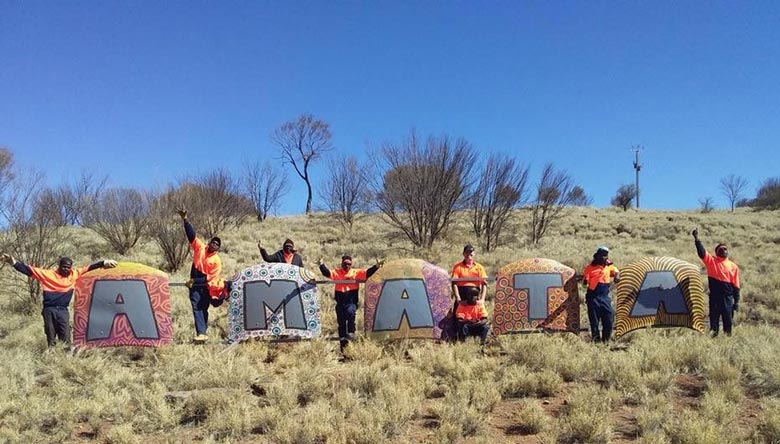
Amata community sign made from painted car bonnets
Now, RASAC is a thriving not-for-profit corporation owned and governed by the Anangu people. It has an annual turnover of $15 million, and is the biggest employer on the APY Lands. Municipal services formed the core of its work. In 2015 it started to run community patrols to improve safety for children, young people and other vulnerable people. RASAC also runs a mechanical workshop—servicing vehicles including police cars and school buses; performs safety checks and minor maintenance of remote aerodromes; and undertakes other infrastructure projects such as road-sealing and construction.
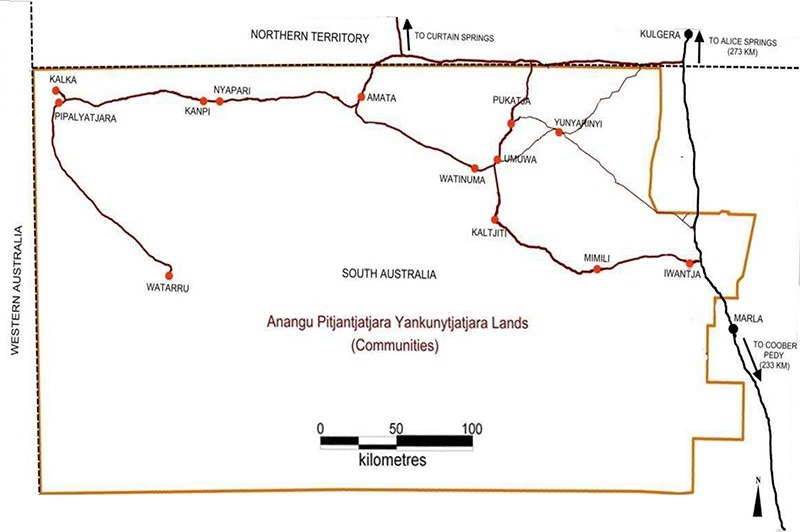
The major communities of the APY Lands
When the directors of RASAC saw the call for tenders for the CDP (community development program) for the region, they were keen to win it. Chair of the board, Jamie Nyaningu, explains:
For a long time the people employed to work in and for Anangu communities came from elsewhere. CDP is a really important program for Anangu. We saw this opportunity to act for and with our people, so we seized it.
Needless to say, RASAC won the tender.
Taking over management of the local CDP program has meant a significant expansion of RASAC’s operations. Job seekers with activity requirements are expected to do up to 25 hours per week of activities that benefit their community. To make sure the activities the corporation oversees under the program are meaningful for participants, and that the outcomes do actually benefit communities, RASAC visited all the communities and talked with senior Anangu people about what to run. RASAC’s general manager, Mark Jackman, describes the corporation’s approach to making the program work as well as it possibly can: ‘There are Commonwealth guidelines we work with—but we know that we need to establish the relationships on the ground.’
The program has been named Warka Wiru CDP-ku, which means great work for CDP and participants. Warka Wiru CDP-ku staff have been working at their local sites to identify and develop local participants to undertake the activities. So far, Anangu workers have been engaged in Mimili, Fregon and Pukatja. RASAC runs the program with a communities first approach meaning that the activities focus on how the community will benefit. Activities are meaningful, provide a work-like structure and are engaging because Anangu can see the direct effect for their community.
What follows is a photo essay of the first three months of the program’s operation.
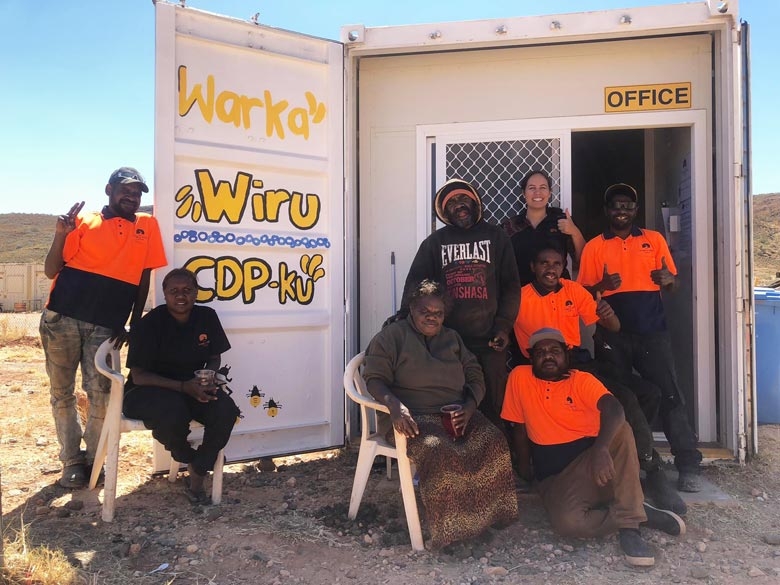
The Warka Wiru CDP-ku office at Pipalyatjara, proud to be setting up in the west
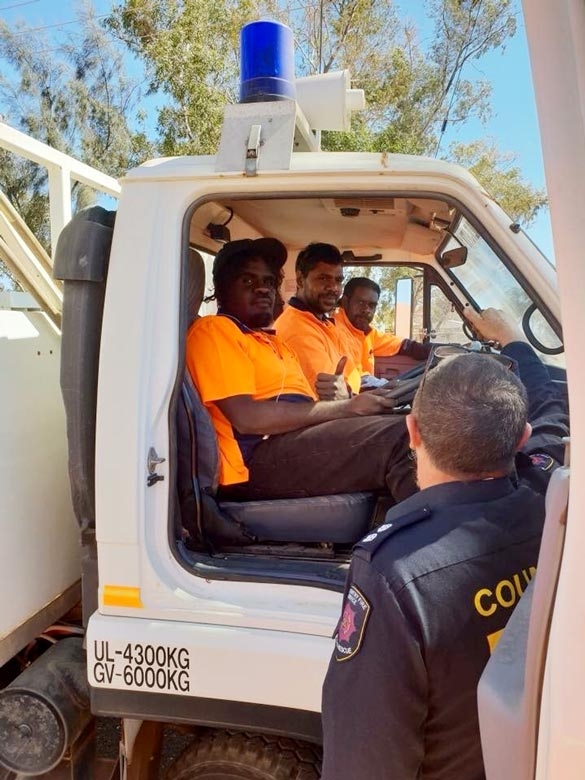
Participants in Fregon recently participated in training with Country Fire Services South Australia, to prepare for summer
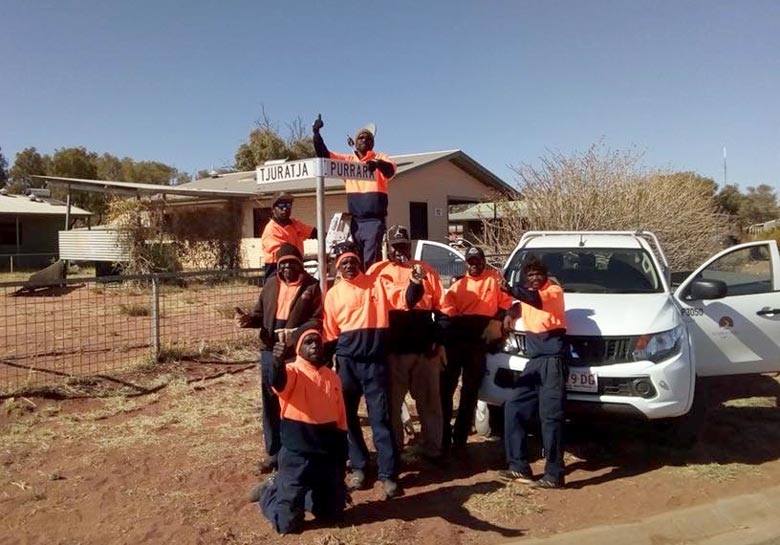
Amata is the first community on the APY Lands to have street names and signs installed
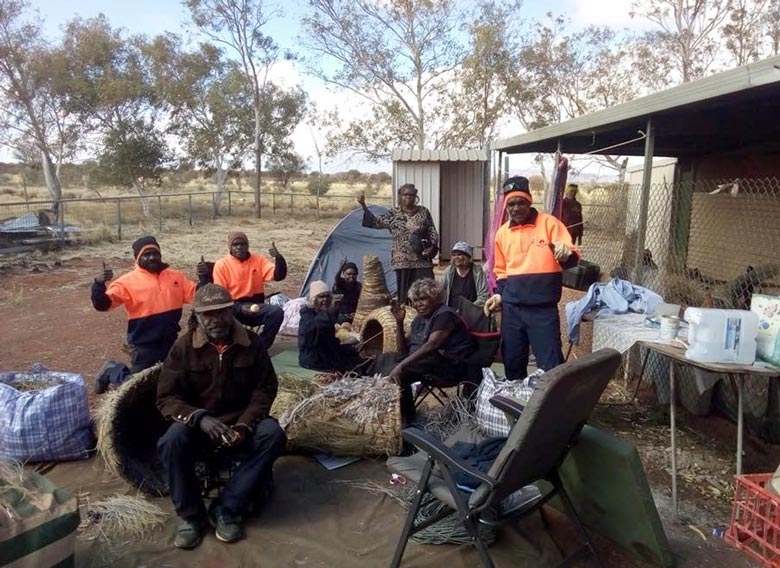
The CDP team from Amata supported ‘minyma pampa’ (senior women) desert weavers by cleaning up and restocking firewood at the homeland camp
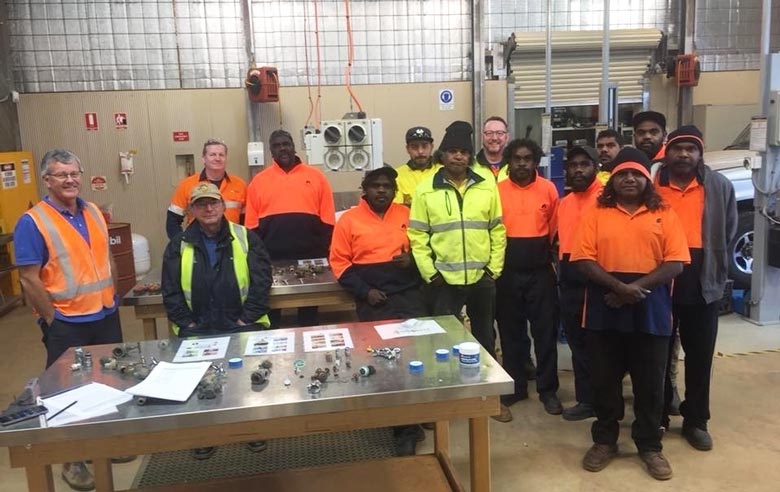
CDP participants attending South Australia Water basic plumbing training at the trade training centre in Umuwa.
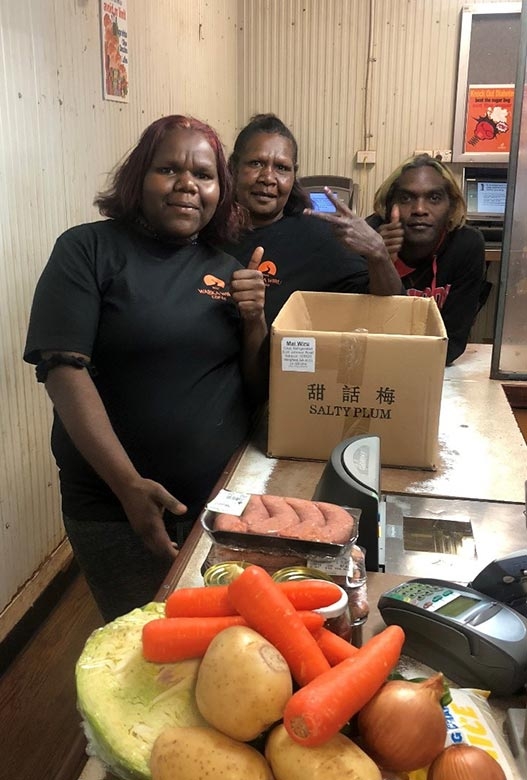
The health and nutrition program in Amata involves creating healthy and nutritious meals but also contextualised language, literacy and numeracy skills. Participants visit with a budget and a recipe and determine quantities and costs. Learning new recipe ideas is a great way to replicate what is being learnt at home, providing young and vulnerable people with healthy tucker.
Mr Jackman reflects on the program’s early successes:
Now that we’re up and running, we’re getting to know all the Anangu job seekers. We want to get Anangu who have disengaged to re-engage, get back on track. We’re finding out about their work goals and their training needs, and at the same time, they’re doing some great work for their own communities. It’s a double-win for Anangu.
To keep up with the program’s activities—and to see more inspiring images—follow RASAC Warka Wiru CDP-ku.